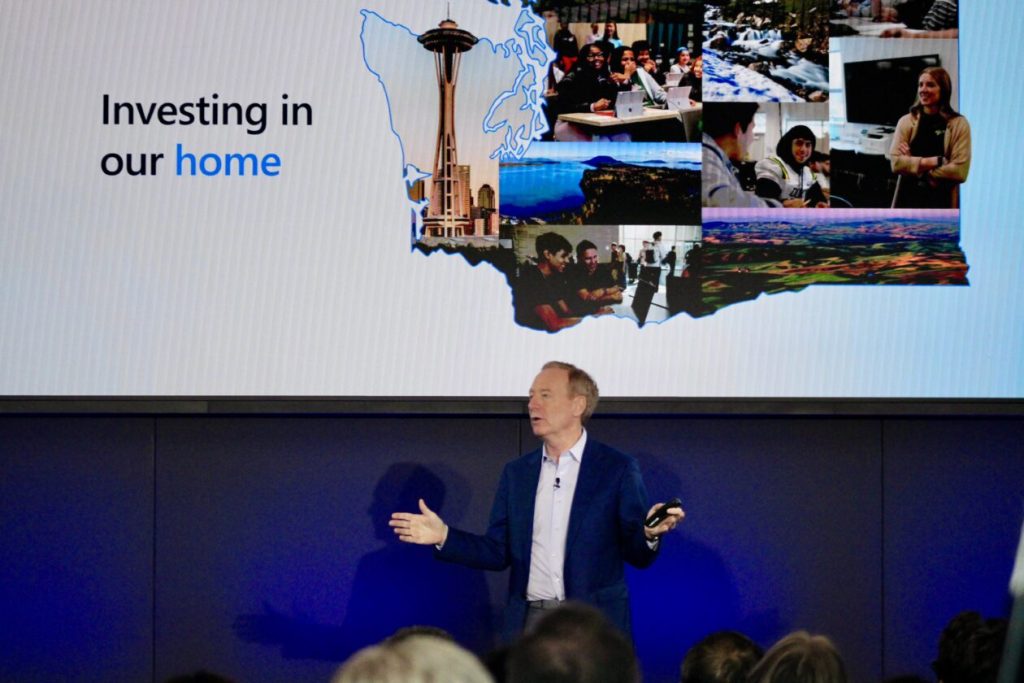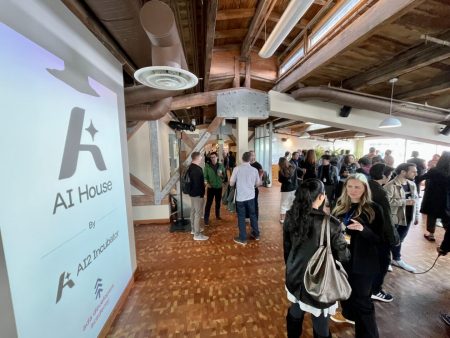Microsoft Brings AI to Washington’s Classrooms: Bridging the Digital Divide While Raising Questions
In a bold move to transform education in its home state, Microsoft has unveiled “Elevate Washington,” a comprehensive initiative that will bring artificial intelligence tools to every public classroom across Washington. Announced by Microsoft President Brad Smith at the company’s headquarters campus on October 9, 2025, this program represents the tech giant’s largest per-resident investment anywhere in the world. “This is our home,” Smith emphasized during the launch event. “A big part of what we’re doing today is investing in our home.” The initiative forms part of Microsoft’s broader $4 billion, five-year “Microsoft Elevate” commitment announced in July to support schools and nonprofits with AI tools and training. Starting in January 2026, the company will offer its Copilot Studio tool—which allows users to create custom AI agents without coding—free of charge for three years to all 295 public school districts and 34 community and technical colleges across Washington state. High school students will receive access to Copilot Chat, Microsoft 365 desktop apps, Learning Accelerators, and Teams for Education at no cost for three years beginning July 2026, while community college students will get a year of Microsoft 365 Personal with Copilot integration. Beyond software access, Microsoft will fund $25,000 consulting grants for up to 10 school districts and 10 community colleges to help them deploy these AI tools effectively.
The initiative emerges from Microsoft’s recognition of a growing technological divide within Washington. Smith shared data showing that while over 30% of residents in counties around Seattle already use AI tools, that figure drops below 10% in several rural eastern counties. “Fundamentally, what we’re seeing is not only a technology gap—what we’re really seeing is an opportunity gap,” Smith explained. This disparity forms the core rationale behind Elevate Washington, which aims to democratize access to AI technology and ensure that educational opportunities aren’t limited by geography or socioeconomic factors. To support the transition, Microsoft will partner with state agencies and teacher unions to deliver professional development programs and bootcamps for educators. A steering committee comprising leaders from Microsoft, education, and government will help guide the program’s implementation, ensuring that multiple stakeholders have input into how AI is integrated into Washington’s educational system.
The announcement comes at a time when AI’s role in education remains hotly debated among educators, parents, and policymakers. Advocates highlight AI’s potential to personalize learning experiences, reduce teachers’ administrative burdens, and help educators tailor lessons to individual students’ needs and learning styles. Critics, however, worry that AI could undermine genuine learning and critical thinking if students become overly reliant on AI-generated answers. There are also concerns about equity—will AI tools widen existing educational gaps if some students have more access or better support than others? Smith acknowledged these tensions but argued that waiting isn’t realistic in today’s rapidly evolving technological landscape. “I don’t know that it will be possible to slow down the use of AI, even if someone wanted to,” he said. “You already see a third of the folks in the state using it, and I think that usage is going to continue to accelerate, especially among people that are younger. So if anything, I think this is about helping the community catch up in ways that do provide the kind of guidance that’s needed.”
Microsoft has been careful to position itself as a partner rather than a director of educational policy, with Smith emphasizing that “the world will not benefit by putting tech companies in charge of education. We know our place.” This stance reflects Microsoft’s awareness of the delicate balance between providing technological tools and respecting the autonomy of educational institutions and policymakers. The company is encouraging its employees to volunteer through programs such as Code.org’s “Hour of AI” to teach digital literacy, further demonstrating a commitment to supporting, rather than dictating, educational approaches. The event featured not only Smith but also comedian Trevor Noah, who serves as Microsoft’s “chief questions officer,” along with Code.org CEO Hadi Partovi and a panel of Washington educators, underscoring the collaborative approach Microsoft is taking with this initiative.
For Microsoft, Elevate Washington represents both a philanthropic endeavor and a strategic business move. By providing AI tools to students and educators across Washington, the company is nurturing future users of its products and potentially developing the next generation of tech workers. The initiative also reinforces Microsoft’s image as a civic and economic pillar of Washington state, even as its relationship with state policymakers has shown signs of strain. Smith has previously criticized state leaders over Washington’s approach to taxation and what he describes as a lack of focus on economic development in the political agenda. Thursday’s announcement, however, struck a more collaborative tone, emphasizing partnership with state educational institutions and agencies.
The timing of this initiative is particularly noteworthy, coming just months after Microsoft confirmed another round of job cuts—about 9,000 positions globally, representing 4% of its workforce—as part of a broader efficiency push. Since mid-May, the company has eliminated approximately 15,000 jobs worldwide, including over 3,100 in Washington state. This context highlights Microsoft’s dual role as both a leading force in AI development and a company navigating the disruptive consequences of the technology it’s creating. When asked about the specific investment amount for Elevate Washington, Smith didn’t provide a figure but noted that “it’s not small.” He described the broader Elevate program as “the next generation of Microsoft Philanthropies,” suggesting it represents an evolution of the company’s approach to charitable and community engagement initiatives. As AI continues to transform industries and education, Microsoft’s initiative in Washington state may serve as a model for how tech companies can work with educational institutions to shape the future of learning in the AI era—balancing innovation with responsibility, and technological advancement with educational equity.














